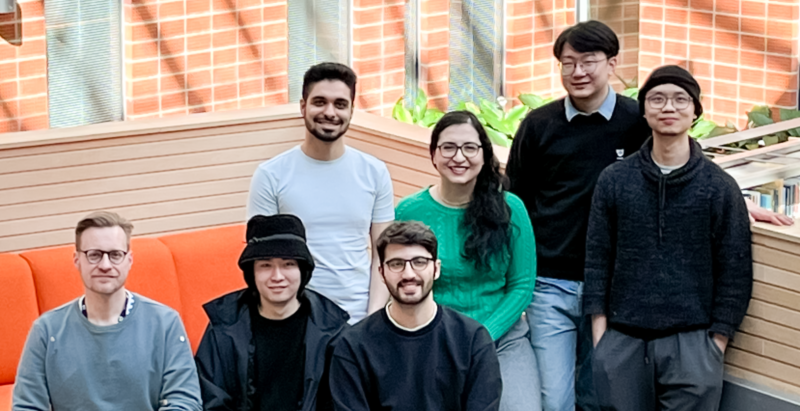What if data of your everyday use of your phone could help with your mental health?
Have you ever been to a doctor and have been asked to remember how you have been, how well you have been sleeping, or how much pain you have had in the past weeks or months? You might have even been asked to fill out long and tedious paper forms with ambiguously worded questions and loosely defined scales. Isn’t there a better way of doing this in a world where everything is constantly measured, monitored, and processed by the technology that is surrounding us?
Research has shown over and over again that people are not good at remembering things accurately. The problem is not even always that we cannot recall the facts, but we are also prone to biases in our memories. Technology has made our lives easier in this sense, and for example, we no longer memorize directions to destinations, but let our phones do the work. However, this same technology that has been in our everyday life for years has still not replaced those paper questionnaires and memory exercises in clinical practice.
There are multiple reasons why technology is not yet fully in use in such cases where people need to remember their past behavior or activities, or physiological metrics such as physical pain. Going from the heterogeneous and raw data produced by personal devices (e.g. smartphones) there is still a long way to extract clinically relevant information which can guide clinicians. Dr. Talayeh Aledavood (University Lecturer at Aalto Computer Science) and her team develop techniques based on artificial intelligence to fill this gap. Her recent project Mobile Monitoring of Mood (MoMo-Mood) uses data collected from personal devices of patients with mental disorders and extracts behavioral markers of these disorders.
Dr. Aledavood’s team chose mental health problems as a target for their research because these disorders have a relatively high mortality rate and impact a lot of people worldwide. Unlike many areas of medicine (for example heart disease) we have not managed to find ways to efficiently diagnose and treat these disorders. However, given that these disorders affect the patients’ behaviors, by measuring and quantifying behavior we can go a long way in getting these disorders under control.
The project MoMo-Mood, which kicked off in 2019, is part of a collaboration between Dr. Aledavood and her team with researchers at the University of Helsinki and HUS. In this study, data from patients with three different types of mental disorders (borderline personality disorder, bipolar personality disorder, and major depressive disorder) were collected from participants’ smartphones and other small devices that were handed out to them on loan. The data was collected using the Niima data collection platform which was developed as part of her past research.
Currently, Dr. Aledavood’s team is analyzing the data collected in the MoMo-Mood study and at the same time is developing a toolbox called Niimpy which can be used for the analysis of any dataset of heterogeneous data collected from different personal and consumer devices, where the goal is to extract behavioral markers. The early results of the MoMo-Mood study, show that there are quantifiable differences in the way patients behave compared to the healthy control group, as measured from their smartphones. For example, the amount that patients move and the average number of places they visit are different from the healthy group. There are also differences in the way they communicate and their social networks.
In the future, the technology and tools developed within this project, could be extended and used for other areas of medicine where behavioral and physiological markers need to be measured continuously in real-life settings. For example, a patient after a back surgery needs to be monitored for the way and amount they move, the amount of pain, sleep, etc. Using these technologies we can have continuous measurement and better monitor the patient and provide care or interventions as needed.
